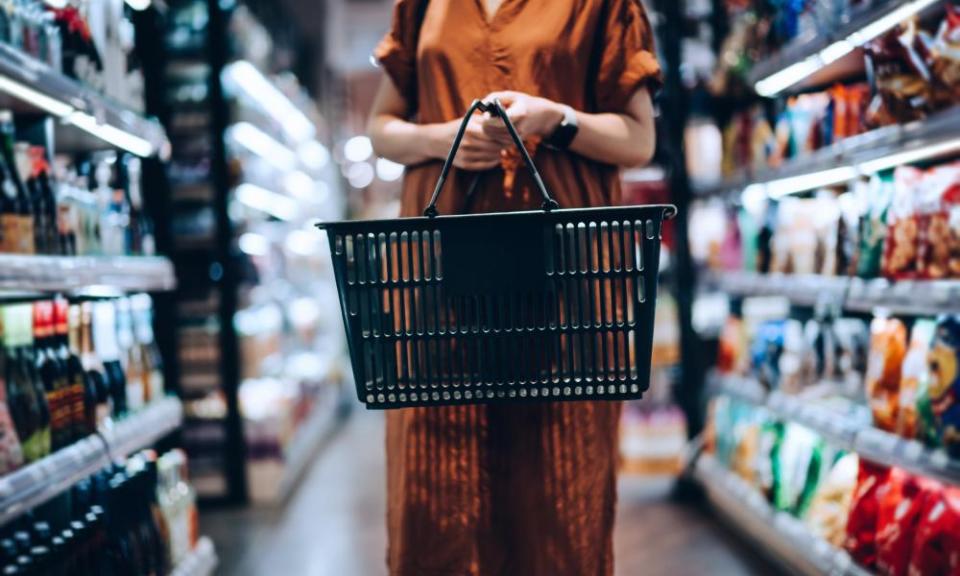‘Extraordinary profits’: New Zealand considers breaking up supermarket duopoly

New Zealand’s government will consider breaking up its supermarket duopoly to secure more affordable food prices for shoppers, after a new report that found the grocers were making huge profits and charging some of the highest prices in the OECD.
David Clark, the commerce and consumer affairs minister, said on Thursday the government would “do whatever it takes to make sure New Zealanders get a fair deal at the checkout”.
“There have been extraordinary profits made in the sector over a period of time compared to international settings … We want everybody to be winning, not just one part of the sector to be taking out super profits,” Clark said.
Related: New Zealand supermarket launches 'quiet hours' for customers with autism
The new draft report by the Commerce Commission, the government agency that regulates competition, monopolies and fair trading, found New Zealand shoppers face some of the most expensive groceries in the OECD.
While comparing international grocery prices is difficult, the commission said datasets showed New Zealand was around the sixth most expensive grocery market, and had the sixth highest spend per capita on grocery products. New Zealand’s wages don’t match those heights – the country’s median wage is 19th in the OECD. In the year to June 2019, food was the second largest expense for New Zealand households, with an average spend of $234 a week.
The commission also found that profit margins at New Zealand supermarkets were consistently higher than those of grocery chains internationally. It recommended government lowering hurdles for new competitors, and if that failed, creating a third major grocery chain to open up the market and potentially forcing the existing chains to sell stores. The commission will now receive submissions from the public and industry before final recommendations go to the government.
“Without intervention, we currently see little prospect of a new or expanding rival being able to constrain the major retailers effectively, and improve competition in the sector,” commission chair Anna Rawlings said in a statement.
New Zealand’s grocery market is dominated by two huge supermarket conglomerates, Foodstuffs and Woolworths. Together, their chains dominate about 85% of the total market. The commission found those retailers “appear to avoid competing strongly with each other, particularly on price”. It concludes that “the core problem is the structure of the market. In competitive terms, the major retailers, Woolworths NZ and Foodstuffs, are a duopoly, and while there is an increasingly diverse fringe of other grocery retailers, they have a limited impact on competition.”
“We have observed consistently high profits being earned by the major grocery retailers. If competition was working better, we would expect these profits to attract new entry and expansion by other grocery retailers, bringing profitability back to a more competitive, or ‘normal’, level,” Rawlings said.
Foodstuffs’ head of corporate affairs, Antoinette Laird, said in a statement “some of the options outlined would have wide reaching implications,” and that the company would be taking time to fully absorb the report before making submissions.
Related: New Zealand supermarket chain becomes first to use 'period' label on menstrual products
Woolworths managing director, Spencer Sonn, released a similar statement saying: “on face value some of the options would have significant implications and we’ll need time to work this through and understand the impact”.
Laird also challenged the commission’s findings about the chains’ profitability, saying “In its draft report, the Commerce Commission acknowledges that understanding the profitability of the two cooperatives has been difficult. Our view is that the Commission’s initial calculation of Foodstuffs’ profitability is not accurate.”
Clark would not comment on specific timelines for implementing the report’s final recommendations, but said “we will want to see action. This is something that we campaigned on, it’s something that Labour cares about – making sure people get a fair deal.”
“That is my objective as minister, I want to make sure that Kiwis are not paying over the odds for their groceries on a weekly basis.”
The report was ordered as part of an election promise by Jacinda Ardern’s government.

 Yahoo Finance
Yahoo Finance 